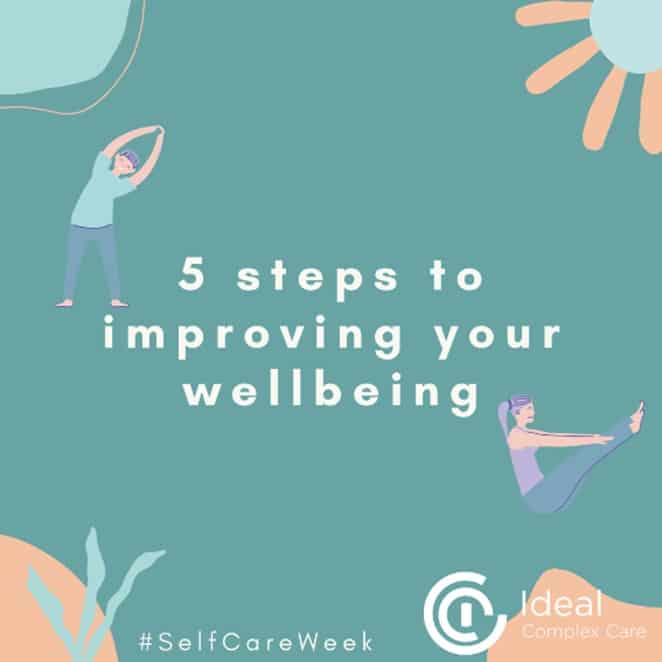Well-being, also known as wellness, refers to what is intrinsically valuable to someone. The well-being of a person is what is ultimately good and is in the self-interest of this person. It is fundamental to our health and happiness.
There are different dimensions of wellness:
- Emotional
- Physical
- Social
- Occupational
- Financial
- Environmental
- Spiritual
- Intellectual
Step one of 5 to improving your wellbeing is ‘Connect with other people’. Good relationships are important for your mental wellbeing. They can:
- help you to build a sense of belonging and self-worth
- give you an opportunity to share positive experiences
- provide emotional support and allow you to support others
There are many ways to try and build stronger and closer relationships with others:
- if possible, take time each day to be with your family, for example, try arranging a fixed time to eat dinner together
- arrange a day out with friends you have not seen for a while
- try switching off the TV to talk or play a game with your children, friends or family
- have lunch with a colleague
- visit a friend or family member who needs support or company
- volunteer at a local school, hospital or community group
- make the most of technology to stay in touch with friends and family
Step two of 5 is ‘Be physically active’. Being active is not only great for your physical health and fitness. Evidence also shows it can also improve your mental wellbeing by:
- raising your self-esteem
- helping you to set goals or challenges and achieve them
- causing chemical changes in your brain which can help to positively change your mood
Some easy ways to add physical activity into your day are:
- take the stairs instead of the lift
- go for a walk on your lunch break
- stretching before you leave for work in the morning
- getting off the bus one stop early and walking the rest of the way
- if you have a disability or long-term health condition, find out about getting active with a disability
Step number 3 ‘Learn new skills’. Research shows that learning new skills can also improve your mental wellbeing by:
- boosting self-confidence and raising self-esteem
- helping you to build a sense of purpose
- helping you to connect with others
Even if you feel like you do not have enough time, or you may not need to learn new things, there are lots of different ways to bring learning into your life.
Some of the things you could try include:
- try learning to cook something new
- try taking on a new responsibility at work, such as mentoring a junior staff member or improving your presentation skills
- work on a DIY project. There are lots of free video tutorials online
- try new hobbies that challenge you, such as writing a blog, taking up a new sport or learning to paint
Step 4 is ‘Give to others’. Research suggests that acts of giving and kindness can help improve your mental wellbeing by:
- creating positive feelings and a sense of reward
- providing you with a feeling of purpose and self-worth
- helping you make connections with others
These acts of kindness can be big or small. Some examples of the things you could try include:
- saying thank you to someone for something they have done for you
- asking friends, family or colleagues how they are and really listening to their answer
- spending time with friends or relatives who need support or company
- offering to help someone you know with DIY or a work project
- volunteering in your community, such as helping at a school, hospital or care home
Step 5 of 5 is ‘Pay attention to the present moment (mindfulness)’.
Paying more attention to the present moment can improve your mental wellbeing. This includes your thoughts and feelings, your body and the world around you.
Some people call this awareness “mindfulness”. Mindfulness can help you enjoy life more and understand yourself better. It can positively change the way you feel about life and how you approach challenges.
Read more about mindfulness, including steps you can take to be more mindful in your everyday life.
It is also worth noting that wellbeing is subjective. What makes you feel good, may be completely different for someone else. It’s important to do what helps YOU feel well.
Source: NHS website









